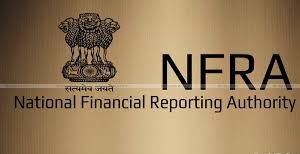Mansoor Ahmad Mir, C.J. - Challenge in this appeal is to judgment and order, dated 24th April, 2012, made by the Writ Court/learned Single Judge in CWP No. 6713 of 2010, titled as Shri Amar Nath Rana v. State of Himachal Pradesh and others, whereby the writ petition filed by the appellant-writ petitioner came to be dismissed (for short "the impugned judgment").
2. Heard.
3. The core question involved in this appeal is � whether a candidate, who has participated in a selection process, failed to make a grade, can question the selection process and the procedure adopted? The answer is in the negative for the following reasons:
4. Respondent No. 2-Himachal Pradesh Public Service Commission (for short "HPPSC") issued advertisement No. VI/2009, on 7th October, 2009 (Annexure P-1 to the writ petition) for filling up fifteen posts of Assistant District Attorney in the Department of Home (Prosecution), H.P. The appellant-writ petitioner, private respondents and others responded and participated in the selection process. The appellant-writ petitioner had also participated in the selection process so far it relates to the posts reserved for OBC category. Interview was conducted and the appellant-writ petitioner failed to make a grade and the private respondents came to be selected.
5. The appellant-writ petitioner invoked the jurisdiction of the Writ Court by the medium of CWP No. 6713 of 2010, praying therein for quashment of selection and for writ of mandamus commanding the respondents-authorities to hold written test and thereafter to conduct the interview.
6. It is not the case of the appellant-writ petitioner that after quashment of the selection and appointment of the private respondents, he be appointed. Virtually, he has prayed that a fresh selection process be drawn.
7. The Writ Court has discussed all the facts including issuance of advertisement notice, application of Rules and also quoted Rule 7 of the Himachal Pradesh, Prosecution Department, Assistant District Attorney, Class-I (Gazetted) Recruitment and Promotion Rules, 2009 (for short "Rules of 2009") in para 3 of the impugned judgment. The Writ Court has also given details as to how many candidates participated in the selection process belonging to all categories. The discussion has rightly been made by the Writ Court from paras 2 to 7 of the impugned judgment.
8. This Court has laid down the tests in a case titled as Amrit Lal Sharma and others v. State of H.P. and others, reported in 2014 (Suppl) Him L.R. 2115 (DB), and, while discussing the law, which was in place at that point of time, right from paras 6 to 16, held that once a candidate has participated in the selection process, he cannot make a u-turn and question the very selection process and the appointments made. It is apt to reproduce para 16 of the judgment herein:
"16. Coming back to the challenge to the selection, it is well settled law that a candidate after remaining unsuccessful cannot challenge the selection process and the constitution of the Selection Committee. If the petitioners entertained any doubts as to the fairness of the members of the Selection Committee, they ought to have objected then. The petitioners however having proceeded with the interviews before Selection Committee to which the objections have now been taken, cannot be permitted to object after remaining unsuccessful (Refer: Madan Lal and others v. State of Jammu & Kashmir and others AIR 1995 SC 1088, Amlan Jyoti Borooah v. State of Assam and others (2009) 3 SCC 227 and Manish Kumar Shahi v. State of Bihar and others (2010) 12 SCC 576)."
9. The Apex Court in a latest judgment in the case titled as Madras Institute of Development Studies and another v. K. Sivasubramaniyan and others, reported in (2016) 1 Supreme Court Cases 454, has discussed how a candidate can be said to be caught by estoppel, acquiescence and waiver. It is apt to reproduce paras 14 to 18 herein:
"14. The question as to whether a person who consciously takes part in the process of selection can turn around and question the method of selection is no longer res integra.
15. In G. Sarana v. University of Lucknow, (1976) 3 SCC 585, a similar question came for consideration before a three Judges Bench of this Court where the fact was that the petitioner had applied to the post of Professor of Athropology in the University of Lucknow. After having appeared before the Selection Committee but on his failure to get appointed, the petitioner rushed to the High Court pleading bias against him of the three experts in the Selection Committee consisting of five members. He also alleged doubt in the constitution of the Committee. Rejecting the contention, the Court held: (SCC p. 591, para 15)
"15. We do not, however, consider it necessary in the present case to go into the question of the reasonableness of bias or real likelihood of bias as despite the fact that the appellant knew all the relevant facts, he did not before appearing for the interview or at the time of the interview raise even his little finger against the constitution of the Selection Committee. He seems to have voluntarily appeared before the committee and taken a chance of having a favourable recommendation from it. Having done so, it is not now open to him to turn round and question the constitution of the committee. This view gains strength from a decision of this Court in Manak Lal''s case where in more or less similar circumstances, it was held that the failure of the appellant to take the identical plea at the earlier stage of the proceedings created an effective bar of waiver against him. The following observations made therein are worth quoting: (AIR p. 432, para 9)
''9. �.......It seems clear that the appellant wanted to take a chance to secure a favourable report from the tribunal which was constituted and when he found that he was confronted with an unfavourable report, he adopted the device of raising the present technical point.''"
16. In Madan Lal v. State of J&K., (1995) 3 SCC 486, similar view has been reiterated by the Bench which held that: (SCC p. 493, para 9)
"9. Before dealing with this contention, we must keep in view the salient fact that the petitioners as well as the contesting successful candidates being respondents concerned herein, were all found eligible in the light of marks obtained in the written test, to be eligible to be called for oral interview. Up to this stage there is no dispute between the parties. The petitioners also appeared at the oral interview conducted by the Members concerned of the Commission who interviewed the petitioners as well as the contesting respondents concerned. Thus the petitioners took a chance to get themselves selected at the said oral interview. Only because they did not find themselves to have emerged successful as a result of their combined performance both at written test and oral interview, they have filed this petition. It is now well settled that if a candidate takes a calculated chance and appears at the interview, then, only because the result of the interview is not palatable to him, he cannot turn round and subsequently contend that the process of interview was unfair or the Selection Committee was not properly constituted. In the case of Om Prakash Shukla v. Akhilesh Kumar Shukla it has been clearly laid down by a Bench of three learned Judges of this Court that when the petitioner appeared at the examination without protest and when he found that he would not succeed in examination he filed a petition challenging the said examination, the High Court should not have granted any relief to such a petitioner."
17. In Manish Kumar Shahi v. State of Bihar, (2010) 12 SCC 576, this Court reiterated the principle laid down in the earlier judgments and observed: (SCC p. 584, para 16)
"16. We also agree with the High Court that after having taken part in the process of selection knowing fully well that more than 19% marks have been earmarked for viva voce test, the petitioner is not entitled to challenge the criteria or process of selection. Surely, if the petitioner''s name had appeared in the merit list, he would not have even dreamed of challenging the selection. The petitioner invoked jurisdiction of the High Court under Article 226 of the Constitution of India only after he found that his name does not figure in the merit list prepared by the Commission. This conduct of the petitioner clearly disentitles him from questioning the selection and the High Court did not commit any error by refusing to entertain the writ petition."
18. In Ramesh Chandra Shah v. Anil Joshi, (2013) 11 SCC 309, recently a Bench of this Court following the earlier decisions held as under: (SCC p. 320, para 24)
"24. In view of the propositions laid down in the above noted judgments, it must be held that by having taken part in the process of selection with full knowledge that the recruitment was being made under the General Rules, the respondents had waived their right to question the advertisement or the methodology adopted by the Board for making selection and the learned Single Judge and the Division Bench of the High Court committed grave error by entertaining the grievance made by the respondents."
10. It is also apt to record herein that in the instant case, the appellant-writ petitioner has not sought his appointment, as discussed herein above, but has sought quashment of the selection process, which was also the prayer made by the writ petitioner in the writ petition filed before the High Court of Judicature at Madras, which has given birth to the judgment in K. Sivasubramaniyan''s case (supra). It would be profitable to reproduce para 13 of the judgment herein:
"13. Be that as it may, the respondent, without raising any objection to the alleged variations in the contents of the advertisement and the Rules, submitted his application and participated in the selection process by appearing before the Committee of experts. It was only after he was not selected for appointment, turned around and challenged the very selection process. Curiously enough, in the writ petition the only relief sought for is to quash the order of appointment without seeking any relief as regards his candidature and entitlement to the said post."
11. Applying the tests in the instant case, the writ petition was not maintainable and the Writ Court has rightly made the impugned judgment, needs no interference.
12. Having glance of the above discussions, the impugned judgment is upheld and the appeal is dismissed along with all pending applications.

